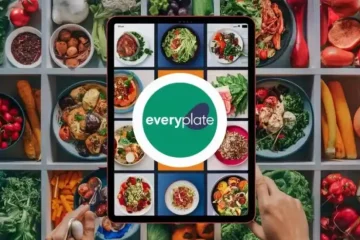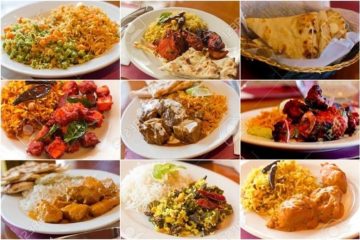Gut-Friendly Diets for Creative Professionals: Boost Your Energy and Productivity Naturally
Creative professionals often juggle multiple projects, deadlines, and brainstorming sessions. To keep up with the demands of a busy schedule, maintaining high energy levels and mental clarity is essential. One effective way to achieve this is by adopting a gut-friendly diet. The gut-brain connection plays a significant role in how we think, feel, and perform. By focusing on what you eat, you can enhance your creativity, productivity, and overall well-being.
Understanding the Gut-Brain Connection
The gut and brain are intimately connected through a network of nerves, hormones, and biochemical signals. This relationship, often referred to as the gut-brain axis, means that what happens in your gut can directly impact your mental state. An unhealthy gut can lead to fatigue, brain fog, and even anxiety—symptoms no creative professional wants to experience.
By nourishing your gut with the right foods, you can improve digestion, reduce inflammation, and support a balanced microbiome. This can result in better focus, more energy, and a boost in creativity.
Key Components of a Gut-Friendly Diet
- Fiber-Rich Foods Fiber is crucial for a healthy gut. It acts as food for beneficial bacteria, helping them thrive. Aim to include plenty of vegetables, fruits, whole grains, and legumes in your diet. Foods like apples, carrots, oats, and beans are excellent choices. They not only support digestion but also help regulate blood sugar levels, preventing energy crashes during your creative work.
- Probiotics Probiotics are live bacteria and yeasts that are good for your digestive system. They can help maintain or restore the gut microbiota, which is essential for overall health. For those dealing with Small Intestinal Bacterial Overgrowth (SIBO), choosing the right probiotic is important. A well-formulated supplement for SIBO can help reduce symptoms like bloating and discomfort, making it easier to concentrate on your creative tasks without distraction.
- Fermented Foods Incorporating fermented foods into your diet is a natural way to introduce probiotics. Foods like yogurt, kefir, sauerkraut, and kimchi are rich in beneficial bacteria that support gut health. These foods can help balance your gut flora, reduce inflammation, and improve mood—essential factors for maintaining creativity and productivity.
- Lactose-Free Options Many people experience digestive discomfort from lactose, a sugar found in dairy products. If you’re lactose intolerant, this can lead to bloating, gas, and stomach pain—distractions that no creative professional needs. Lactase pills can be a simple solution. These pills provide the enzyme needed to digest lactose, allowing you to enjoy dairy products without the unpleasant side effects. By managing lactose intolerance effectively, you can maintain a diet that supports both your gut and your creative process.
- Healthy Fats Healthy fats, such as those found in avocados, nuts, seeds, and olive oil, are vital for brain health. They support the production of neurotransmitters and help reduce inflammation. Incorporating these fats into your diet can improve your cognitive function, allowing you to think more clearly and stay focused during long creative sessions.
- Hydration Staying hydrated is key to maintaining a healthy gut. Water helps with digestion and the absorption of nutrients. It also keeps your energy levels stable throughout the day. Consider starting your day with a glass of water and continue to sip throughout your work hours. Herbal teas, particularly those with anti-inflammatory properties like ginger or peppermint, can also be beneficial.
Tips for Implementing a Gut-Friendly Diet
- Plan Your Meals Preparing meals ahead of time can help ensure you stick to your gut-friendly diet, even during busy periods. Batch cooking on weekends or setting aside time to prepare simple, nutritious meals during the week can make a big difference.
- Snack Wisely Choose snacks that are both satisfying and beneficial for your gut. Nuts, seeds, and fresh fruit are excellent options. Avoid sugary snacks that can spike your blood sugar and lead to energy crashes.
- Listen to Your Body Pay attention to how different foods make you feel. Everyone’s gut is unique, so it’s important to identify which foods work best for you. If you notice certain foods cause discomfort or sluggishness, consider reducing or eliminating them from your diet.
- Introduce Changes Gradually If you’re new to a gut-friendly diet, start slowly. Gradually introduce more fiber, probiotics, and fermented foods into your meals. This approach allows your gut to adjust and reduces the risk of digestive upset.
- Consider Professional Guidance If you’re unsure where to start, consulting with a nutritionist or dietitian who specializes in gut health can be valuable. They can help you create a personalized plan that aligns with your creative lifestyle and dietary needs.
The Creative Edge of a Healthy Gut
A healthy gut doesn’t just improve your physical health; it can also enhance your mental performance. By focusing on gut-friendly foods, you can reduce the likelihood of digestive issues that might interfere with your work. You’ll find that your energy levels are more consistent, your focus sharper, and your mood more stable. This combination is the perfect recipe for creativity and productivity.



